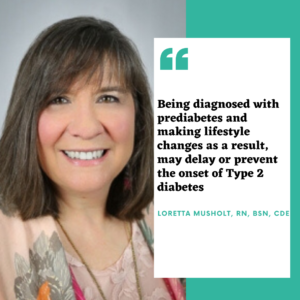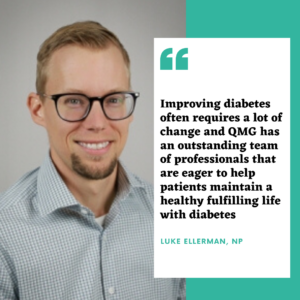Quincy Medical Group issued the following announcement on Nov. 6.
What is Diabetes?
November is National Diabetes Month. Did you know there are actually different kinds of diabetes, and each type is treated differently?
Type 2– The most common type of diabetes. This type of diabetes is characterized by “insulin resistance” where the body makes insulin but it is not able to be used efficiently.
Type 1– Sometimes called “juvenile” diabetes, this can be diagnosed at any age. This type of diabetes is an autoimmune disease where the pancreas can no longer make the hormones needed to manage blood glucose.
Gestational- This type of diabetes is seen in pregnant women, and for 95% will go away after delivery. Gestational diabetics are more likely to get type 2 diabetes later in life.
What are the risk factors?
Nearly 95% of those with diabetes have type 2 diabetes, which translates to nearly 30 million Americans. Another 84 million Americans have pre-diabetes. This means they are at high risk for developing type 2 diabetes.
For type 2 diabetes risk factors include age, family history, race, diet, lifestyle, and other medical conditions that increase one’s risk such as polycystic ovarian syndrome. Just because you have one or more risk factors does not mean you are destined to get diabetes, but it may increase the chances. Regular bloodwork with a primary care doctor is a great way to know your risk and prevent or manage medical conditions.
Know your numbers
Typically a fasting blood glucose or “blood sugar” under 100 mg/dl is optimal for someone without diabetes. If your blood sugar is higher your doctor may test something called Hemoglobin A1c%. A Hemoglobin A1c% of over 6.5% suggests that someone may have diabetes, and 5.7-6.4% suggests someone may have pre-diabetes. There are other factors that can affect blood glucose and that is why it is important to have yearly testing to see how things are changing.
Who can help?
The first person to talk to is generally a primary care physician, they can test to see what your fasting blood glucose or A1c is. After that, they may refer you to see a dietitian for nutrition counseling to assist you in understanding a diabetic diet. Additionally, nurse diabetes educators may be scheduled to assist with questions about medication timing, using a glucometer, or insulin. Some may even see a physician hormone specialist, or endocrinologist, to assist in managing their diabetes.
Original source can be found here.



Source: Quincy Medical Group




 Alerts Sign-up
Alerts Sign-up